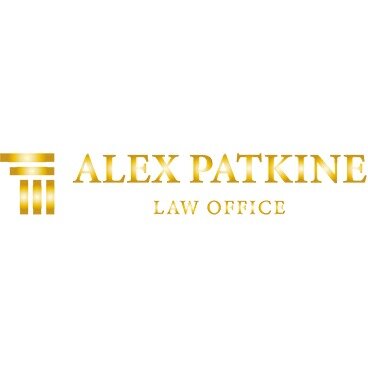Best Restructuring & Insolvency Lawyers in Tel Aviv
Share your needs with us, get contacted by law firms.
Free. Takes 2 min.
List of the best lawyers in Tel Aviv, Israel
About Restructuring & Insolvency Law in Tel Aviv, Israel
Restructuring and insolvency law in Tel Aviv, Israel, governs the processes available to companies and individuals who face financial distress and are unable to meet their debt obligations. Tel Aviv, as the economic hub of Israel, sees significant business activity, making restructuring and insolvency issues particularly relevant for local businesses, entrepreneurs, and investors. Israeli law aims to balance the interests of creditors and debtors by providing legal frameworks for debt settlement, business reorganization, liquidation, and personal bankruptcy, all of which are handled by special courts and insolvency professionals.
Why You May Need a Lawyer
You may need a lawyer who specializes in restructuring and insolvency for several reasons. Some of the most common situations include:
- Your business is facing severe financial difficulties and you want to explore restructuring options before insolvency becomes necessary.
- You are being threatened with legal action by creditors over unpaid debts.
- You want to negotiate payment plans or settlements with creditors.
- Your bank accounts or assets have been seized due to outstanding debts.
- You are a creditor in a situation where a debtor is unable to pay, and you want to understand your rights and remedies.
- You need guidance in court proceedings related to liquidation or bankruptcy.
- You are considering a formal insolvency process, such as receivership or creditor arrangements.
- You need to protect your personal assets from business liabilities where possible.
- You are a director or shareholder concerned about potential legal risks or liabilities during financial distress or insolvency.
- You need advice on the implications of insolvency for employment contracts and ongoing business operations.
Local Laws Overview
Israeli restructuring and insolvency law is primarily governed by the Insolvency and Economic Rehabilitation Law, 5778-2018. This law modernized and consolidated previous bankruptcy and corporate insolvency legislation, aiming to facilitate rehabilitation over liquidation when possible and to clarify the priorities among creditors.
Key legal aspects of restructuring and insolvency in Tel Aviv include:
- The law applies both to individuals and companies facing insolvency.
- Court-appointed trustees and experts may oversee the process, ensuring that the interests of creditors and debtors are considered fairly.
- Debtors can propose debt arrangements subject to court approval, aiming to settle debts while attempting business recovery.
- Liquidation remains a possible outcome if rehabilitation is determined not to be feasible.
- The process for declaring insolvency involves submitting applications to the relevant economic court, providing detailed financial information and proposed solutions for debt repayment.
- The law includes automatic stays on creditor actions once insolvency proceedings begin, protecting debtors from aggressive collection efforts during restructuring efforts.
- Certain debts, such as child support or criminal fines, are not discharged in bankruptcy or insolvency processes.
- There are specific reporting and conduct requirements for directors and company officers during financial distress, to avoid personal liability.
Frequently Asked Questions
What is the difference between restructuring and insolvency?
Restructuring refers to reorganizing a company or individual's financial affairs in order to avoid insolvency and enable continued operations. Insolvency is the legal status of being unable to pay debts as they come due, often leading to formal legal proceedings like liquidation or bankruptcy.
Who can initiate insolvency proceedings in Israel?
Insolvency proceedings can be initiated by the debtor, creditors, or sometimes by the state. Most commonly, debtors voluntarily apply when they are unable to pay debts or foresee financial collapse.
What is an economic court?
Economic courts in Israel are specialized judicial bodies that handle complex commercial matters, including restructuring and insolvency cases. In Tel Aviv, these courts have expertise relevant to local business operations.
What protections are available during insolvency proceedings?
Once insolvency proceedings are initiated, an automatic stay usually halts creditor collection actions, lawsuits, and asset seizures, giving the debtor time to propose solutions or reorganize without immediate external pressure.
Can an insolvency process save my business?
Yes, the Israeli legal framework encourages rehabilitation and debt arrangements as alternatives to liquidation. If your business can be viable with proper restructuring, a legal process may allow you to continue operations under a supervised plan.
Are all my debts discharged in bankruptcy?
Not all debts are dischargeable. Obligations such as child support, criminal fines, or certain judgments remain after insolvency proceedings conclude.
How long does an insolvency process take?
The duration varies based on the complexity of the case and the type of process involved. Simple individual bankruptcy or insolvency cases can take about one to three years, while complex business restructurings may take longer.
Will insolvency affect my personal assets if I own a company?
Generally, company and personal assets are separate, but if you have given personal guarantees or failed certain duties as a director, personal assets could be at risk. A lawyer can advise on strategies to protect your assets.
Can creditors challenge insolvency arrangements?
Yes, creditors have rights to oppose or propose modifications to debt arrangements and plans of rehabilitation. Courts consider creditor objections and must approve any final arrangement.
What are the risks for directors during insolvency?
Directors have duties to act in the best interests of creditors once insolvency is foreseeable. Failure to fulfill these duties could result in liability or disqualification. Legal advice ensures compliance with these obligations.
Additional Resources
If you need information or support regarding restructuring and insolvency in Tel Aviv, you can contact or consult the following resources:
- The Israel Ministry of Justice - Insolvency and Economic Rehabilitation Commissioner (Insolvency Authority)
- The Tel Aviv Economic Court
- Israeli Bar Association
- Business support centers and chambers of commerce in Tel Aviv
- Consumer advice centers for individual insolvency assistance
Many of these bodies offer informational guides, support services, and direct channels for submitting applications or receiving general guidance.
Next Steps
If you believe you require legal assistance in restructuring or insolvency matters in Tel Aviv, it is important to:
- Gather all relevant documentation regarding your financial situation, debts, assets, and business records.
- Consult with a qualified restructuring and insolvency lawyer registered with the Israeli Bar Association.
- Consider an initial consultation to clarify your options, understand the likely outcomes, and prepare for potential legal processes.
- Follow legal advice carefully regarding communications with creditors and legal obligations during financial distress.
- If applicable, prepare for court proceedings or submission of applications to the insolvency authority.
Timely legal intervention can often lead to better outcomes, preserve assets, and increase the chances of a successful restructuring or settlement. Take proactive steps and do not delay seeking professional support if you or your business are facing financial difficulties in Tel Aviv.
Lawzana helps you find the best lawyers and law firms in Tel Aviv through a curated and pre-screened list of qualified legal professionals. Our platform offers rankings and detailed profiles of attorneys and law firms, allowing you to compare based on practice areas, including Restructuring & Insolvency, experience, and client feedback.
Each profile includes a description of the firm's areas of practice, client reviews, team members and partners, year of establishment, spoken languages, office locations, contact information, social media presence, and any published articles or resources. Most firms on our platform speak English and are experienced in both local and international legal matters.
Get a quote from top-rated law firms in Tel Aviv, Israel — quickly, securely, and without unnecessary hassle.
Disclaimer:
The information provided on this page is for general informational purposes only and does not constitute legal advice. While we strive to ensure the accuracy and relevance of the content, legal information may change over time, and interpretations of the law can vary. You should always consult with a qualified legal professional for advice specific to your situation.
We disclaim all liability for actions taken or not taken based on the content of this page. If you believe any information is incorrect or outdated, please contact us, and we will review and update it where appropriate.

















